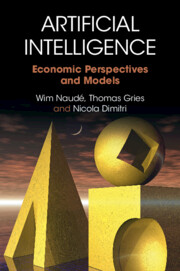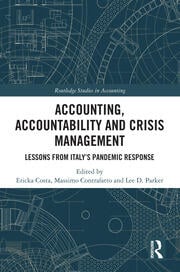
E-Book
Artificial Intelligence
ISBN : 9781009483094
Author : Naudé
Publisher : Cambridge University Press
Year : 2024
Language : English
Type : E-book
Description : Is Artificial Intelligence a more significant invention than electricity? Will it result in explosive economic growth and unimaginable wealth for all, or will it cause the extinction of all humans? Artificial Intelligence: Economic Perspectives and Models provides a sober analysis of these questions from an economics perspective. It argues that to better understand the impact of AI on economic outcomes, we must fundamentally change the way we think about AI in relation to models of economic growth. It describes the progress that has been made so far and offers two ways in which current modelling can be improved: firstly, to incorporate the nature of AI as providing abilities that complement and/or substitute for labour, and secondly, to consider demand-side constraints. Outlining the decision-theory basis of both AI and economics, this book shows how this, and the incorporation of AI into economic models, can provide useful tools for safe, human-centered AI.ปัญญาประดิษฐ์เป็นสิ่งประดิษฐ์ที่สำคัญยิ่งกว่าไฟฟ้าหรือไม่? ปัญญาประดิษฐ์จะส่งผลให้เกิดการเติบโตทางเศรษฐกิจอย่างก้าวกระโดดและความมั่งคั่งที่ทุกคนไม่อาจจินตนาการได้ หรือจะทำให้มนุษย์ทุกคนต้องสูญพันธุ์? ปัญญาประดิษฐ์: มุมมองและโมเดลทางเศรษฐกิจเป็นการวิเคราะห์ที่รอบคอบเกี่ยวกับคำถามเหล่านี้จากมุมมองทางเศรษฐกิจ โดยให้เหตุผลว่าเพื่อให้เข้าใจผลกระทบของปัญญาประดิษฐ์ต่อผลลัพธ์ทางเศรษฐกิจได้ดีขึ้น เราต้องเปลี่ยนวิธีคิดเกี่ยวกับปัญญาประดิษฐ์ที่เกี่ยวข้องกับโมเดลการเติบโตทางเศรษฐกิจโดยพื้นฐาน หนังสือเล่มนี้อธิบายถึงความก้าวหน้าที่เกิดขึ้นจนถึงขณะนี้ และเสนอสองวิธีในการปรับปรุงโมเดลปัจจุบัน ประการแรก คือ การรวมเอาลักษณะของปัญญาประดิษฐ์ในฐานะที่ให้ความสามารถที่เสริมหรือทดแทนแรงงาน และประการที่สอง คือ การพิจารณาข้อจำกัดด้านอุปสงค์ หนังสือเล่มนี้อธิบายพื้นฐานของทฤษฎีการตัดสินใจของทั้งปัญญาประดิษฐ์และเศรษฐศาสตร์ และแสดงให้เห็นว่าสิ่งนี้และการรวมปัญญาประดิษฐ์เข้ากับโมเดลทางเศรษฐกิจสามารถให้เครื่องมือที่มีประโยชน์สำหรับปัญญาประดิษฐ์ที่ปลอดภัยและเน้นที่มนุษย์ได้อย่างไร








